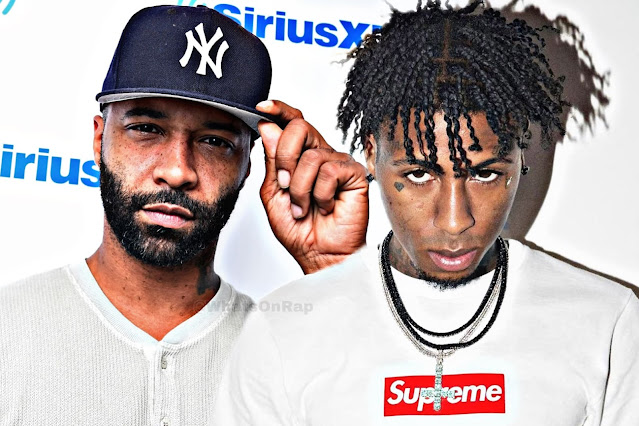Joe Budden Calls NBA Youngboy’s Music Trash On His Podcast | WhatsOnRap

Joe Budden Shows No Mercy to NBA YoungBoy, Calling His Music Trash and says the labels pushed the button to create the “YB Better” movement.
On a Saturday morning, December 2nd, during Episode 680 of “The Joe Budden Podcast,” Joe Budden delved into the question of whether he’s prepared to speak the truth about NBA YoungBoy. In a candid moment, he asserted, “Am I ready to do this? That guy is trash, he’s horrible, he’s really bad.” Budden didn’t hold back, expressing his unfiltered opinion on the rapper.
As the discussion unfolded, Budden provided insights into NBA YoungBoy’s career trajectory. He pointed out a pivotal moment when the label seemingly orchestrated a promotional push during the artist’s absence. “That thing happened with him where when he was out, the label pushed the button and did some YouTube stuff, so all the little kids had to come to the gathering and tell you about how great he is and how many views he has and all of that,” Budden explained. “Now that the label is backed up, we got three to four of those projects while he’s been in Utah on house arrest.”
Adding to the critique, podcast host Ice weighed in, highlighting a perceived shift in NBA YoungBoy‘s music. “That’s where the problem lies. Earlier NBA YoungBoy music did not sound this way. He just dropped a single last night, and I listened to it and turned it off halfway through,” shared Ice. When asked about the difference between the artist’s music before and now, Ice emphasized his ability to
Joe Budden calls NBA Youngboy ‘trash’ and says the labels pushed the button to create the “YB Better” movement. 😳‼️
“He’s horrible, he’s horrible… he is really bad.”
— WhatsOnRap (@whatsonrap) December 3, 2023
Known for his polarizing takes on music, Joe Budden has previously engaged in public disagreements with artists, including a fiery exchange with Drake. Notably, after Drake’s release of “For All The Dogs,” Budden critiqued Drake’s approach, mentioning, “[Drake is] rapping for the children.” Drake, never one to shy away from a response, fired back, asserting that Budden had abandoned a certain path for the one he’s currently on, suggesting that Budden’s opinions come from a place of perceived failure.
This exchange adds another layer to the ongoing conversation about the dynamics between seasoned artists and the younger generation in the ever-evolving landscape of the music industry. It reflects the nuances of artistic evolution, public reception, and the inevitable clash of perspectives within the diverse realm of hip-hop.